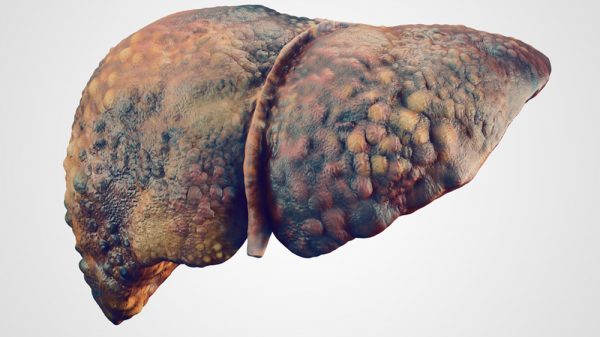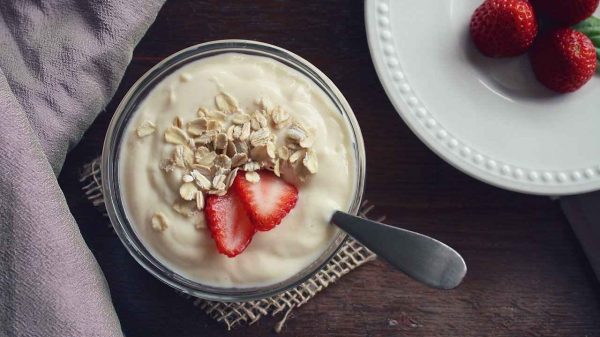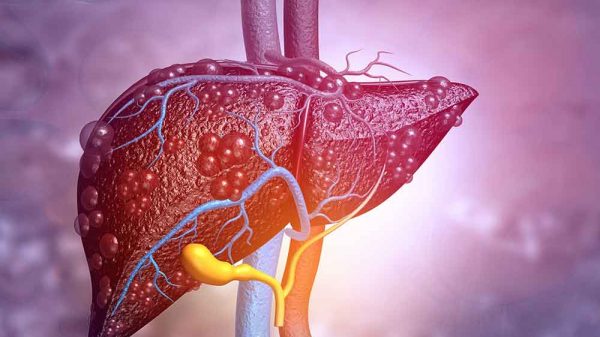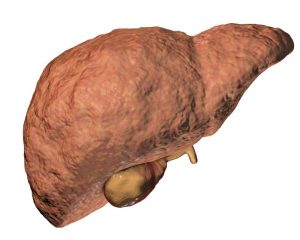If you are feeling sluggish and bloated, you may benefit from a liver detox. Using a quick internet search, you can find all kinds of liver cleanse programs that promise to restore and rejuvenate your liver. However, many liver detox regimens don’t do what they say, or they could potentially be harmful to the liver. Here we tell you everything you need to know about a liver cleanse tea, liver cleanses diets, and other liver detox remedies to promote optimal liver health.
What You Need to Know About Liver Detoxes
Not all liver detoxes are created equal. Here we go through a few things to think about before starting a liver cleanse.
Avoid Restrictive Diets
Restrictive diets and long juice cleanses are not advisable for liver health or overall health. Severely restricting the intake of calories and certain nutrients can lead to adverse health consequences. Consuming a very low-calorie diet that leads to drastic weight loss in rare cases may precipitate gallstones or an acute episode of fatty liver disease. Plus, severely restricting the intake of protein and essential amino acids can cause muscle wasting and compromise immune function.
Be Careful with Supplements
Though there are many supplements that are helpful for a variety of health conditions, it’s important to do some research and talk to your doctor before starting new supplements. Many supplements are not approved by the U.S. Food and Drug Administration (FDA) and may fall below certain standards set for food and other products.
Liver Cleanse Teas
As we will explore below, liver cleanse teas are a therapeutic component of the liver cleanse diet. However, it’s vital to pair liver detox tea with a healthy diet that promotes optimal liver function. It’s also essential to avoid overdoing it with the consumption of herbal teas.
When it comes to consuming herbs, less is more, in general. Use herbal teas sparingly as an added tool in your liver cleansing regimen. Remember that all herbs that you consume must also be processed by the body and by your liver. Even if herbs seem to have beneficial impacts, make sure not to overdo it.
Liver Cleanse Tea to Try
Here we go through the different kinds of tea that have liver-supporting properties.
Dandelion Root Tea
When we think of dandelions, we often envision bright yellow flowers that grow like weeds throughout the summer. But did you know that dandelion also offers many health benefits? Dandelion root has been used as a therapeutic agent for numerous ailments.
Dandelion is regarded as an effective liver detox home remedy. Research backs up the use of dandelion for quelling liver conditions and metabolic dysfunction, like type 2 diabetes. (1)
When possible, choose organic dandelion root to avoid any extra additives and chemicals. Dandelion root tea can be prepared at home or using pre-made tea bags.
Milk Thistle Tea
Milk thistle is one of the most well-known herbs for liver health. Research describes the important role that milk thistle may play in addressing liver damage associated with alcohol-induced damage and viral hepatitis. (2) Milk thistle and milk thistle seed can be taken as a supplement, though it is also available as a tea.
Licorice Root
Science backs up the therapeutic impacts of licorice on the liver. Researchers in Korea studied the effect of licorice on mice with alcohol-related fatty liver disease. (3) Results revealed that licorice administration improved alcohol-induced liver damage and exhibited anti-inflammatory activity. (3) Licorice seems to exert powerful anti-inflammatory and antioxidant effects on liver tissue. Scientists found that licorice extract improved the levels of the antioxidant glutathione within the mouse livers. Licorice also impeded the activity of an inflammatory cytokine called TNF alpha. (3)
Peppermint
Peppermint is a familiar flavor used in candies and holiday treats. But did you know that peppermint oil may play a role in protecting the liver from damage?
Research backs up the potential benefits of peppermint for the liver. A study published in Lipids in Health and Disease evaluated the impact of peppermint oil administration on rats prior to undergoing carbon tetrachloride-induced liver damage. (4) Results found that rats treated with higher doses of peppermint oil significantly improved liver enzyme levels as well as higher antioxidants in the liver. (4)
Drinking tea that contains peppermint may help promote liver health during a liver detox.
Green Tea
Green tea is known to be a potent antioxidant that helps alleviate a variety of inflammatory diseases. The catechins and polyphenols in green tea exhibit potent antioxidant activity and neutralize free radicals in organ systems throughout the body, making it a perfect liver cleanse drink.
In fact, a study published in the International Journal of Clinical and Experimental Medicine found that green tea consumption is associated with a lower risk of developing liver disease.
Green tea can be consumed hot or chilled. Because green tea contains caffeine, it is best consumed earlier in the day, so it doesn’t interfere with your sleep schedule.
Ginger Root
Ginger is a warm, spicy flavor that works well in both sweet and savory foods. Ginger is known to help quell stomach pain and nausea, but did you know that it may also be beneficial for nonalcoholic fatty liver disease?
A study published in Hepatitis Monthly found that patients who took ginger supplements had improved measures of certain liver enzymes, inflammation, and fat accumulation in the liver, when compared to placebo. (5)
Ginger tea is a soothing drink that can be enjoyed at any time of the day. You can also prepare ginger tea using fresh ginger root.
Turmeric
Turmeric is a spice that has been utilized in Ayurvedic medicine for thousands of years, and the health benefits of turmeric are confirmed by modern research. A systematic review published in Nutrients discusses how turmeric, or curcumin, helps reduce oxidative stress and inflammation in the liver by inhibiting the activity of inflammatory cytokines. (6)
To increase your consumption of turmeric, you can incorporate it into your liver-cleansing routine by sprinkling it in your tea. Because turmeric has an earthy taste, it pairs well with citrusy flavors like lemon and orange.
Besides adding turmeric to tea, you can also increase your intake of the spice by using it as a seasoning in savory dishes.
Cardamom
Cardamom is another warm spice that is popular in Eastern cooking. A study published in Lipids in Health and Disease found that the administration of cardamom was linked to a decrease in liver enzyme levels and inhibited liver fibrosis in obese rats. (7) This suggests that cardamom may play a crucial role in mitigating liver inflammation and oxidative stress.
To incorporate cardamom into your regimen, sprinkle a little in your tea or add to savory spiced dishes.
Fennel
Fennel is a plant with a mild licorice flavor that works well in numerous recipes. A study carried out by researchers at the Department of Biology at Umm Al-Qura University in Saudi Arabia tested the impacts of fennel oil in rats. (8) Results determined that there seems to be a link between fennel extract and improved levels of liver enzymes and liver inflammation. (8)
Fennel seeds can be used to make tea. Alternatively, try adding fresh fennel to your favorite soups and stews as an extra dimension with carrots, onions, and celery.
Juniper Berry
Juniper berries are small, bitter berries that grow on juniper trees. These berries may have an impact on liver conditions. A study published in Hepatology suggests that juniper berry oil increases blood flow in the liver and decreases liver cell death. (9) Improved circulation means that more oxygen and nutrients are getting to all areas of liver tissue.
Drinking tea that contains juniper berry may help promote liver health.
Other Tips and Strategies for Supporting Liver Health
Liver cleanse tea alone won’t detoxify the liver. Instead, incorporating cleansing tea into a liver-friendly diet and lifestyle is the most effective way to promote liver health.
1. Weight Loss
If you are overweight and have been diagnosed with nonalcoholic fatty liver disease, losing weight is one of the most effective methods for cleansing the liver. When you are carrying excess weight, fat particles are more likely to make their way into liver cells and accumulate in a way that is characteristic of nonalcoholic fatty liver disease. Over time, fatty liver disease can lead to more severe liver conditions.
Losing weight is one of the most effective ways to get rid of excess fat in the liver. As you lose weight from other areas of the body, the liver will lose weight, too. To achieve a healthy weight, monitor your calorie intake, eat an anti-inflammatory diet, and increase your physical activity.
2. Fruits and Veggies
Whatever you’re making, fruits and veggies should be a significant part of a liver cleanse recipe. Eating an abundance of fruits and vegetables supports optimal liver health. Fresh fruits and veggies are a rich source of vitamins, minerals, and antioxidants that support liver health. How do the micronutrients in fruits and vegetables help the liver?
When we eat lots of fruits and veggies, we are getting plenty of micronutrients that the body needs for all cells to carry out their functions. The antioxidants present in fruits and veggies, like polyphenols, carotenoids, and vitamin C, are particularly crucial for cleansing the liver. These nutrients neutralize free radicals and help the liver get rid of them. As a result, the liver and the immune system can heal liver tissue from oxidative stress.
3. Eat Organic Foods When Possible
When possible, strive to choose organic foods over non-organic foods. Non-organic foods are grown using pesticides, which ward off insects and animals that ruin crops. Although pesticides may help crops grow in bulk without being destroyed, the chemicals linger on crops until they are consumed, introducing chemicals to the body. Over time, these chemicals may accumulate and cause oxidative stress.
On the other hand, organic foods have been grown without the use of chemicals. By choosing to eat more organic foods, you are introducing fewer toxins into the body. However, buying organic food can be expensive! So, keep in mind that the most important foods to buy organic are fruits and veggies like spinach, strawberries, blueberries, apples, bell peppers, grapes, and celery. For foods with a peel that we don’t typically eat – like oranges, kiwi, and bananas – it’s less important to buy organic.
4. Avoid Added Sugars
When consumed in excess over a long time, added sugars wreak havoc on liver health. Eating high amounts of added sugar causes blood sugar levels to skyrocket. The pancreas then releases insulin to signal to tissues to uptake sugar for use by cells and tissues.
However, over time, insulin gets fatigued, and the body is unable to keep up with the amount of sugar you are consuming. This results in fat accumulation throughout the body, including the liver, which increases the risk of developing fatty liver disease. Eating too much added sugar also contributes to the development of insulin resistance and type 2 diabetes.
To avoid added sugars, stay away from products like cookies, cake, candy, soda, sugary breakfast cereal, pastries, and even certain salad dressings and condiments. It’s also important to limit your intake of processed grains like white rice, white bread, and white pasta, which are handled in the body just like added sugars.
5. Avoid Saturated Fat
The combination of added sugars and saturated fat in the diet is a recipe for disaster for metabolic function and liver health. Saturated fat inhibits the normal function of insulin receptors, causing higher levels of sugar to remain in the bloodstream and ultimately be deposited as fat in the liver. High consumption of saturated fat increases the risk of developing insulin resistance, type 2 diabetes, and fatty liver disease.
To cut back on your intake of saturated fat, stay away from foods like steak, bacon, full-fat cheese, whole milk, and other processed meats and animal products. Instead, replace saturated fats with healthy fats like those found in salmon, mackerel, chia seeds, flaxseeds, pecans, avocado, and olive oil.
6. Get Balanced Ratios of Amino Acids
Research shows that certain amino acids play an important role in liver health by reducing inflammation, improving metabolic functions, and fighting against fat accumulation in the liver. (10)
But what are amino acids, anyway? Amino acids are the smallest units that make up protein. When we eat dietary protein, the body breaks down whole protein particles into their individual units. These amino acids are then sent throughout the body to be used for various purposes, like synthesizing muscle tissue and building hormones, neurotransmitters, and other protein-based compounds.
There are two forms of amino acids: essential and nonessential. The body can synthesize nonessential amino acids, while essential amino acids must be acquired from nutritional sources. Meat, eggs, dairy, and fish offer optimal ratios of essential amino acids. Just be sure to choose low-fat meat, eggs, and dairy. Plant-based sources also provide essential amino acids. However, plant-based proteins must be combined throughout the day to ensure that you’re getting all the essential amino acids you need to adequately support all biological mechanisms, including those taking place in the liver.
7. Avoid Alcohol and Smoking
Both drinking alcohol and smoking are detrimental to liver health. Alcohol subjects liver tissue to significant inflammation and oxidative stress because the liver is responsible for metabolizing alcohol into nontoxic compounds. Alcohol produces harmful free radicals that interact with healthy liver tissue and cause inflammation. Over time, chronic and heavy alcohol consumption increases the risk of developing fatty liver disease.
Similarly, smoking introduces chemicals to the liver by way of the lungs. Inhaled chemicals enter the bloodstream through the lungs and can travel to other organs like the liver. These chemicals must then be processed, and they simultaneously result in the buildup of reactive free radicals that cause inflammation and oxidative stress.
Avoiding both alcohol and smoking gives your body the chance to clear oxidative stress and reduce systemic inflammation.
8. Treating Underlying Issues
If you have liver disease, it’s important to seek treatment from your physician and recommended specialists. Many dietary strategies help manage liver conditions, and in fact, nonalcoholic fatty liver disease can often be completely reversed with diet and lifestyle changes alone.
However, it’s always important to follow the medical advice that your doctor provides. If you have a liver condition, it will often require specialized treatment. For example, if you have hepatitis C, you will need to take a course of antiviral medication to resolve the infection.
9. Drink Coffee
Coffee plays an important role in protecting liver health by protecting liver cells from damage and inhibiting fibrotic processes. Many individuals may be tempted to go caffeine-free for liver detox. However, unless you are sensitive to caffeine, it actually doesn’t matter if your liver cleanse includes some caffeine. Both caffeinated and decaffeinated coffee appear to have a positive effect on liver health. (11, 12)
Precautions and Things to Keep in Mind
Before drinking herbal teas, taking supplements, or drastically changing your diet, it’s a good idea to check in with your doctor and a registered dietician. There are numerous herbs on the market that are claimed to be liver-cleaning, like rooibos, burdock root, schisandra, and others. Always do research before choosing a new liver-cleansing herb to try. As a reminder, always check with your physician before taking new herbs and supplements.
When it comes to liver detoxing, there is no single best detox drink to completely cleanse the liver. Instead, a combination of herbal tea, an anti-inflammatory diet, and a liver-friendly lifestyle promotes optimal liver health.
Signs of Liver Detox Working
Stick to your liver detox plan for longer than a few days, since detoxification and liver healing takes time. After doing a liver cleanse, you will likely notice some differences in how you feel. You may feel like you have more energy and better concentration. Since the liver-cleansing diet is also healthy for overall health and wellness, you may even notice weight loss, less bloating, and an improvement in metabolic conditions.
Liver Cleanse Tea and Detox Tips: Conclusion
Liver cleanse teas are helpful tools when striving to detoxify the liver. However, on their own, tea won’t encourage optimal liver health. Instead, it’s vital to also follow a healthy diet and lifestyle that supports optimal liver function. Drinking liver cleanse teas in the context of a liver-friendly diet and lifestyle will have much more positive effects. Plus, following a healthy diet and lifestyle will help ensure that results are sustained over a longer period of time.
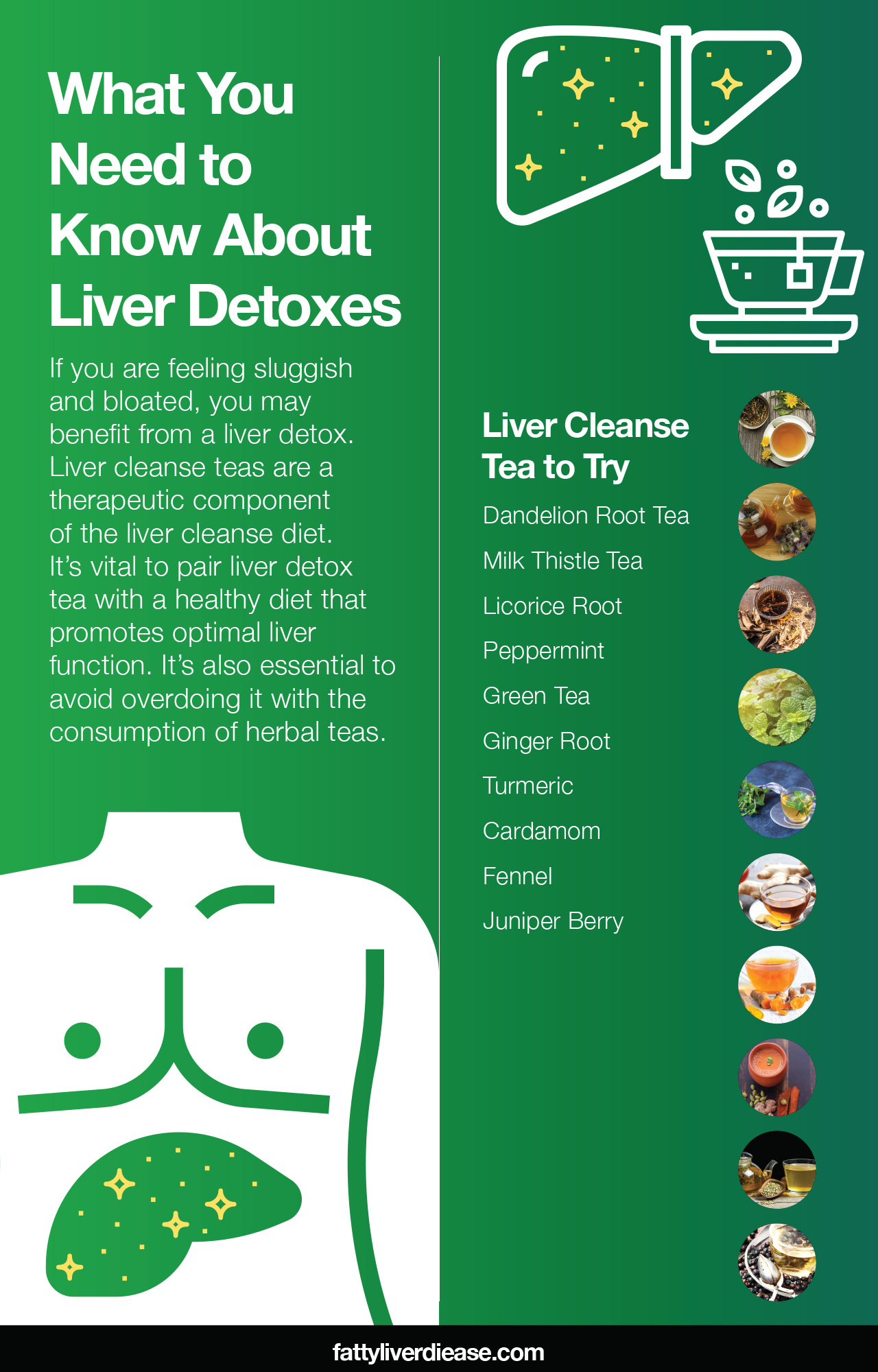
References:
(1) https://www.ncbi.nlm.nih.gov/pmc/articles/PMC5553762/
(2) https://pubmed.ncbi.nlm.nih.gov/20564545/
(3) https://www.ncbi.nlm.nih.gov/pmc/articles/PMC4722619/
(4) https://www.ncbi.nlm.nih.gov/pmc/articles/PMC5761127/
(5) https://www.ncbi.nlm.nih.gov/pmc/articles/PMC4834197/
(6) https://www.ncbi.nlm.nih.gov/pmc/articles/PMC6073929/
(7) https://www.ncbi.nlm.nih.gov/pmc/articles/PMC5557534/
(8) https://www.ncbi.nlm.nih.gov/pmc/articles/PMC5415150/
(9) https://pubmed.ncbi.nlm.nih.gov/9755241/
(10) https://www.ncbi.nlm.nih.gov/pmc/articles/PMC6619856/


